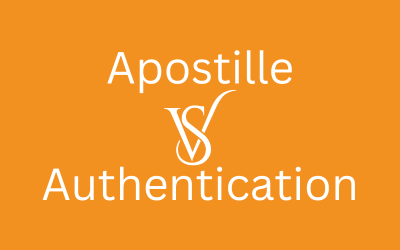At any time, a percentage of the labor force is unemployed for various reasons. According to the United States Department of Labor, 6.4 million (3.8%) people across the U.S. were unemployed in March 2024. State unemployment insurance is a critical support program that helps individuals who lose their jobs through no fault of their own, providing a source of income while they search for another position. Since 2007, there have typically been two to five million active UI claims on any given day, according to data from the Bureau of Labor Statistics. During the pandemic, claims rose to nearly 25 million!
You may wonder if unemployment insurance is a state or federal program. It’s actually both — financed through federal and state payroll taxes. Business owners who hire employees must become familiar with how it works to ensure they comply with their responsibilities through their payroll management processes. Fulfilling (or failing to fulfill) UI obligations has legal and tax implications.
How SUI Programs Work
State unemployment insurance is called SUTA (State Unemployment Tax Act) or SUI (State Unemployment Insurance). Both SUTA and FUTA (Federal Unemployment Tax Act) programs work together to enable eligible applicants to receive a portion of their wages for a set period of time or until they find another job. FUTA tax funds help support the federal government’s oversight of state UI programs. If a state experiences high unemployment, it may borrow funds from the federal program.
State and federal unemployment taxes — primarily paid by employers — fund those benefits. The FUTA tax is paid solely by employers, and in nearly all states, employers are alone responsible for paying the SUI tax. The only exceptions are Alaska, New Jersey, and Pennsylvania, where employees are subject to a portion of the state UI tax (which is withheld from their pay and then remitted to the state).
In many states, the point at which an employer must begin paying the tax is the same as for FUTA:
- They have paid wages totaling at least $1,500 in any calendar quarter of the current or previous year, or
- They had at least one employee for at least some part of a day for 20 weeks (consecutive or not) in the current or previous calendar year.
However, not all states follow federal law, so it’s important to research the requirements for your state or talk with a payroll specialist or tax attorney who can advise you on your responsibilities.
Generally, individuals terminated by their employer for reasons other than poor performance, stealing from the company, criminal activity, harassment or abuse, or excessive unexcused absences will qualify for unemployment benefits. The amounts vary, but state programs typically replace 25-55% of an employee’s weekly earnings (up to a maximum amount and for a specific period after the employee was terminated). Many states consider an unemployed worker eligible only if they’ve received a minimum amount of earnings from — or worked a minimum amount of time for — their former employer.
Register for State Unemployment Insurance
CorpNet can help your new business register for payroll taxes. We’ll make it fast and easy to keep you and your company in compliance.
State Unemployment Tax Rates
States levy the tax as a percentage of an employee’s gross wages or salaries. SUTA tax rates and the methods for determining them vary from state to state. Various factors — such as the employer’s industry (some are more prone to laying off workers), the number of employees a company has, how much money it has already contributed to UI, and the number of employees who claimed benefits after being terminated by the company — can affect the unemployment insurance rate calculation.
States’ wage base limits (the maximum amount of an employee’s annual wages subject to the tax) for UI also differ. Whereas the federal UI tax is imposed only on the first $7,000 of an employee’s yearly wages, some states have a much higher maximum limit — the loftiest of all being Washington state with a taxable wage base over $60,000.
Because benefits are funded by taxes already paid, the employer does not owe additional money when an employee files a claim. However, if an employer has a growing number of former employees receiving benefits, the state might increase the employer’s SUI tax rate.
Generally, paying into a state’s program can lower an employer’s FUTA tax rate. While the FUTA tax is 6%, an employer who made state UI tax payments may receive up to a 5.4% credit, resulting in a FUTA rate of 0.6%. However, credit reduction states — i.e., those with an outstanding loan of more than two years with the federal UI program — get a lesser credit, with their credit reduced by 0.3% each year until their debt is paid.
How to Make Payments to SUTA
- Register with the state – Employers must register for an account with their state’s unemployment agency. They usually do so online through the state government’s website. Upon registration, the state will inform the employer of the applicable SUI tax rate.
- Set up UI payments in your payroll system – It’s critical to pay the appropriate amount of SUTA and FUTA for each employee. Most payroll software solutions have features that calculate and set aside unemployment tax payments. SUTA payment schedules vary by state.
- File the required UI tax reports and returns – States’ forms and reporting requirements vary. Many have online portals for employers to report their wages and tax data and make SUI payments. Generally, employers must make quarterly FUTA tax deposits by electronic funds transfer and then file Form 940 (a federal unemployment tax return) annually, which summarizes the amount of unemployment tax paid and what is owed.
When an Employee Makes an Unemployment Claim
An employee who is terminated through no fault of their own may file a claim with their state’s unemployment office. The office reviews the claim, a process that includes verifying it with the former employer. The employer must provide various details about the former employee’s employment such as wages and salary amounts, employment status (e.g., full-time or part-time), termination reason, evidence of misconduct, and other information).
If the unemployment office approves the claim, the worker receives a portion of the pay they received before termination. Unemployment compensation is not paid indefinitely; benefits expire after a set time period or when the worker finds a new job (whichever comes first).
When an Employer Denies a Unemployment Claim
It’s important that employers contest claims by workers who were terminated for reasons rendering them ineligible for benefits (e.g., they quit or were fired with cause, such as for poor job performance, criminal activity, harassment, etc.). If an invalid claim gets approved, it could result in the state raising the employer’s SUTA tax rate.
When denouncing a claim, the employer must provide supporting documentation (letter of resignation, performance reviews, attendance records, etc.) to demonstrate why the circumstances of the workers’ termination make them ineligible for benefits.
If the state unemployment agency approves the claim anyway, the employers may appeal it and ask for a hearing.
Avoid Penalties
If an employer fails to file its UI tax reports and make its deposits on time, there can be hefty consequences. The employer could face a variety of penalties, including fines, interest charges, or even criminal prosecution. That’s why it’s crucial for employers to complete state payroll tax registration, have a system in place to accurately make tax deposits and remit them to the appropriate tax agencies, and consult legal and tax professionals for guidance.
Frequently Asked Questions
What’s the difference between SUTA and FUTA tax?
SUTA refers to UI taxes paid at the state level, and FUTA is the federal UI tax equivalent. States may borrow from FUTA funds in times of high unemployment to help provide jobless workers with benefits to sustain them while they seek new employment.
How often does an employer pay SUTA tax?
Each state sets its own payment schedule. However, most require deposits quarterly or annually.
Do you have to pay state unemployment tax in states where you have remote employees?
Yes. Employers with employees who work in other states must pay for state UI in each state where their employees are located.
Do you pay into SUI for the independent contractors who do work for your business?
No! 1099 workers are not employees of your company. Therefore, you do not pay UI tax for them, and they are not eligible for benefits if you let them go (for any reason).
Do self-employed business owners pay unemployment insurance?
Business owners operating as a sole proprietorship or partnership are not considered company employees. They do not receive wages and salaries from the company and are not eligible for benefits. UI tax applies to wages paid to employees on payroll but not to the compensation sole proprietors and partners withdraw for themselves from their businesses.
Is state unemployment insurance tax deductible?
An employer’s SUI contributions may be tax deductible on their federal tax return as either taxes or a business expense. The type of deduction depends on whether or not the state classifies UI funds as taxes.
Are any businesses with employees exempt from paying into unemployment?
While most employers must pay federal and state unemployment taxes if they paid wages of $1,500 — or had one or more employees for any part of the day in 20 or more weeks (consecutive or not) in the current or previous calendar year — some exemptions exist. Nonprofit organizations with 501(c) (3) status are exempt from FUTA tax. Typically, nonprofits aren’t exempt from paying SUTA though. Most states require charitable organizations to pay into unemployment the same way other businesses do. Some states offer nonprofits the option to self-insure, which means instead of making regular UI tax deposits, the organization repays the state if terminated or laid-off employees receive benefits.





